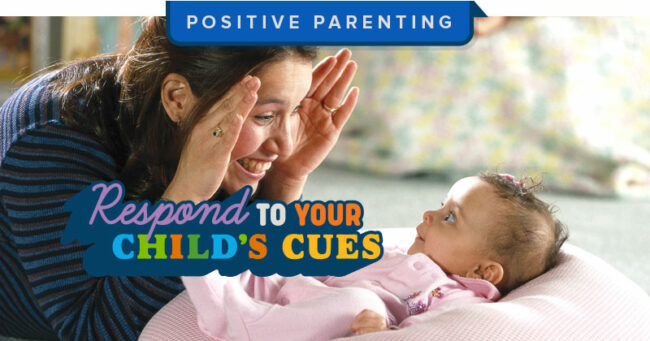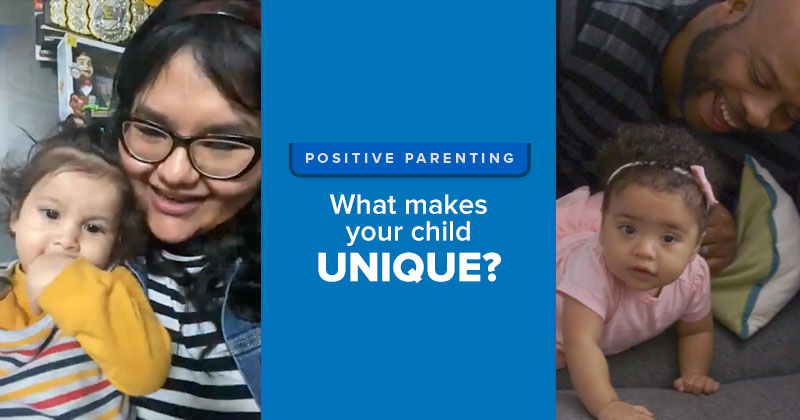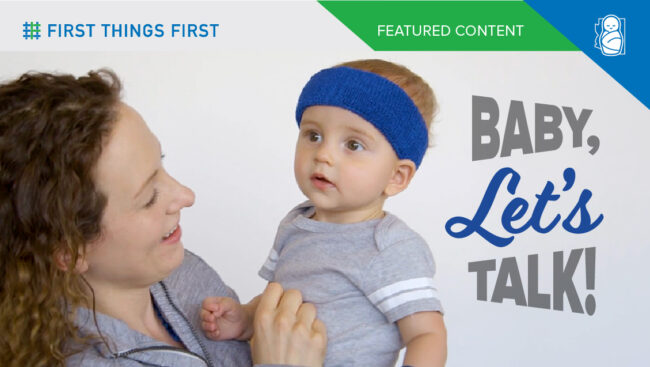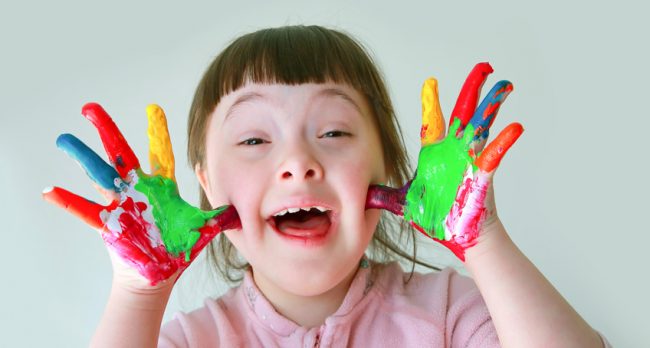Your baby’s brain develops faster in the first year than at any other time. They learn from seeing, touching, hearing, tasting, smelling and moving.
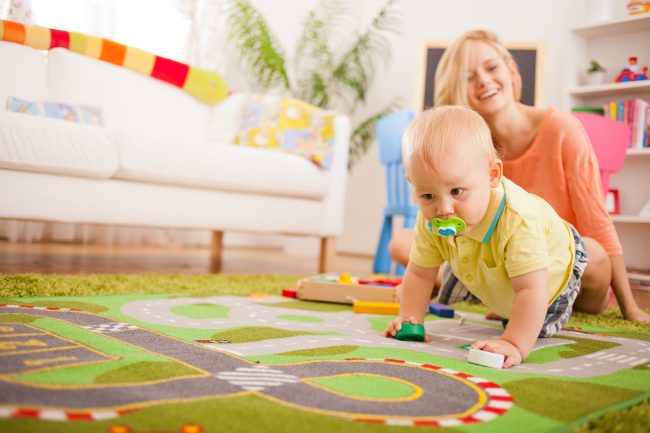
Helping Your Baby Learn
- Babies and young children learn through play. Tell your baby stories, sing together, and play games like peekaboo and patty-cake.
- Make time to sit on the floor and do what your baby wants to do.
- Make a calm, safe place to play so your baby can explore freely.
- Copy your baby’s sounds and gestures, and let them copy you.
- Let them discover things on their own. Try not to stop them as long as they are safe.
- When your baby fusses or turns away, they are ready to stop playing.
- When your baby does something unsafe or reaches for something off-limits, gently move them or move the object away from them. Babies do not need any more correction than this.

Supporting Your Baby’s Personality
By now you are seeing what makes your baby an individual, in the ways they react to people and the world around them. You may be learning that your baby is quite different from you.
Watching your baby’s personality come out can be one of the biggest joys of parenthood, even if you don’t feel proud and happy about everything your baby does. Find ways to support your baby’s unique personality. If your baby is active and confident, give them lots of time for play. If your baby is cautious or shy, give them time to get used to new places and people. And give all babies lots of attention. You cannot spoil a child under 1 year old with too much attention.
Back-and-Forth Conversations
When you answer your baby’s gurgles and laughs with words and laughs of your own, you are teaching them how to have a conversation, and helping their brain develop.
When your baby makes sounds or points at something, you can react to that. Take part in what your baby is doing or watching. For example, you can say “I see the truck too!” Or ask a question, like “Did you touch my nose?” Wait and see if your baby continues the conversation, and then you can respond again. Notice when your baby wants to stop or do something else, and let them do that.
Video chat is another way for young children, even babies, to learn and build relationships with long-distance relatives and friends.
Sharing Stories with Your Baby
Babies love the sounds of words and the sound of your voice. They like cloth, vinyl and board books with simple stories and pictures of things they know. They like to wave their arms and bat the pages. As they get older, they join in and help tell the story. Reading and sharing books is a time for you to feel close and help your baby learn.
Early Head Start
Low-income families can get child care, as well as help with babies’ learning and other family issues, at Early Head Start. Find your local Early Head Start Center at the Arizona Head Start Association.
If Your Child Has a Disability
If your child has a disability, you may get the most helpful advice and support from parents with similar experiences. They can help you find resources, information and emotional support. To find a parent group, contact the Center for Parent Information and Resources, your local hospital or Raising Special Kids Arizona.
Health Care and Financial Help
If your child has a disability, they may qualify for Social Security or low-cost or free health care even if your family does not. See the Finding and Using Health Care page, or contact AHCCCS. Other types of financial help may be available for you. Check here.
Tools to Help Your Child
There are special tools to help children talk, write, learn and play. For example, a handle on a pencil can help a child write. For computer resources and other tools, contact Arizona Technology Access. The Arizona Department of Education also offers information about assistive technology.
More Ways to Find Help
Arizona Early Intervention Program (AzEIP) — Help for families with babies who haven’t reached expected developmental milestones. For children between birth and age 3.
The First Things First Parent Kit was developed in partnership with Health Research for Action/UC Berkeley. © 2023 The Regents of the University of California. Additional video, graphic and other content © 2023 First Things First. All rights reserved.


